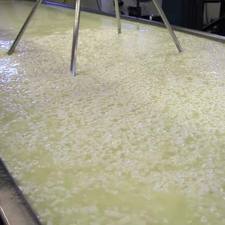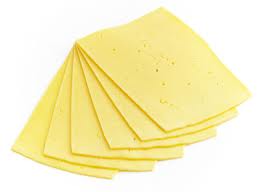There is a general rule in Halacha, Jewish Law, governing natural derivatives from Kosher and non-Kosher animals. Kol hayotzei min hatahor tahor, vichol hayotzei min hatamei tamei. Derivatives from a Kosher species are Kosher, while derivatives from a non-Kosher species are not. Therefore, milk produced by Kosher mammals, such as cows, goats, and sheep, are considered Kosher, while milk from non-Kosher mammals, such as horses, pigs, camels, or whales, are forbidden.

Cholov Yisroel: Does a Neshama Good

Wheying the Kosher Possibilities
Food technology has made enormous strides since Miss Muffet sat down to her feast of curds and whey. Today whey has emerged as one of the most versatile food components with many new and exciting food applications. Typically, whey cream can be churned into butter or be converted into ricotta cheese. Whey can be dried into a powder and be used as a basic ingredient in cereals, baked beans, hot cocoa, and seasonings. Whey protein concentrate is a fundamental ingredient in infant formula and bakery products. Lactose, the milk sugar found in whey, is used as a flavor enhancer or a carrier in pharmaceuticals. In addition, whey is converted into alcohol and used in alcoholic beverages. Clearly the industry continues to discover whey’s versatility. Where does whey come from and what, if any, are the kashrus issues relating to whey in general, and cholov yisroel in […]

Eating Her Curds? No Way
Published Spring 2011
If Miss Muffet was a conscientious seminary girl, sitting down to a meal of curds and whey would not be so simple. There is much to consider. Was the milk Cholov Yisroel? Does the milk have to be Cholov Yisroel? Was the starter culture Cholov Yisroel? What rennet was used to coagulate the milk? Did the mashgiach add the coagulants to make the curds and whey? Are all curds and whey created equal?

 STAR-D
STAR-D STAR-S
STAR-S